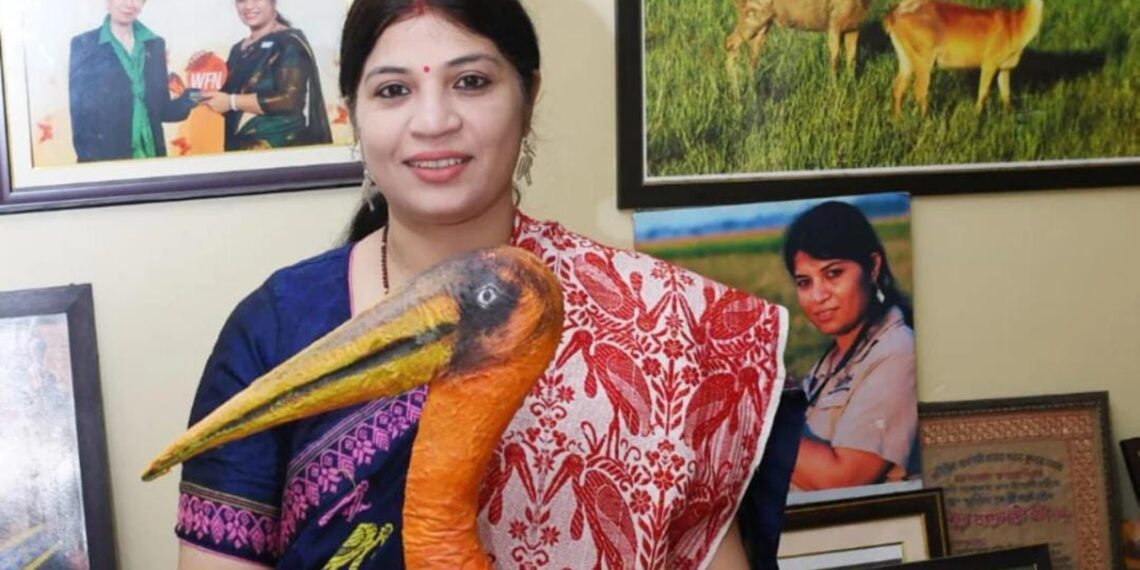Guwahati: Purnima Devi Barman, a biologist and wildlife conservationist from Assam, has recently been recognised as one of The Times’ Women of the Year, alongside international figures like actress Nicole Kidman and activist Fatou Baldeh.
But her achievements are rooted not in glamour, but in her deep commitment to nature, her community, and the conservation of the Hargila stork, also known as the greater adjutant stork.
Barman’s connection to wildlife began early in her life, inspired by her grandmother’s love for birds.
This childhood fascination led her to pursue a career in wildlife conservation, focusing on protecting the greater adjutant stork.
When Barman first began her work, the stork was critically endangered, with just around 450 individuals remaining in Assam.
Thanks to her efforts, the stork’s status has been upgraded by the International Union for Conservation of Nature (IUCN) from “endangered” to “near threatened,” and the population has since grown to over 1,800 in the region.
Barman’s approach to conservation wasn’t just about protecting the birds; it was also about involving local communities, especially women, in the process.
In 2007, she founded the Hargila Army, a group of more than 20,000 women dedicated to protecting the storks’ nests and educating others about the birds.
This initiative has not only helped safeguard the storks but has also provided economic opportunities for women, as they can now earn a living by selling traditional crafts like shawls and clothing adorned with stork images.
READ MORE: PFCI moves Gauhati High Court for rescue of ‘tortured’ Assam elephant Joymala
What started as a local effort in Assam has since spread to other parts of India and even Cambodia, with schools around the world teaching about Barman’s work.
The impact of the Hargila Army has been profound, empowering women and giving them a sense of pride and purpose while contributing to the survival of the greater adjutant stork.
Barman’s dedication to conservation has earned her recognition, including the Whitley Award in 2017 and the Champions of the Earth Award from the United Nations Environment Programme in 2022.
While these accolades are significant, for Barman, the real success lies in the positive change she has brought to both the environment and the lives of the women involved in her work.















